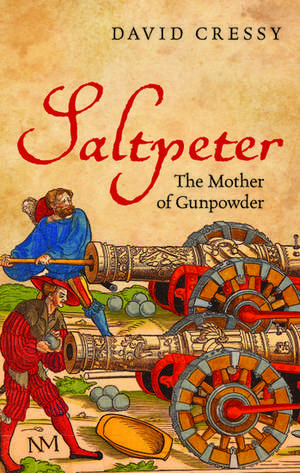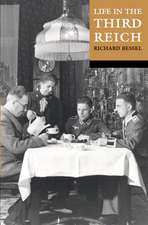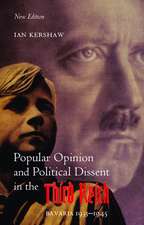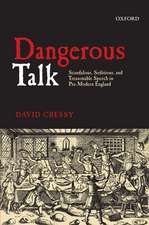Saltpeter: The Mother of Gunpowder
Autor David Cressyen Limba Engleză Hardback – 10 ian 2013
Preț: 299.44 lei
Nou
Puncte Express: 449
Preț estimativ în valută:
57.30€ • 59.98$ • 47.41£
57.30€ • 59.98$ • 47.41£
Carte tipărită la comandă
Livrare economică 25-31 martie
Preluare comenzi: 021 569.72.76
Specificații
ISBN-13: 9780199695751
ISBN-10: 019969575X
Pagini: 256
Ilustrații: 20 black and white halftones
Dimensiuni: 148 x 222 x 20 mm
Greutate: 0.42 kg
Editura: OUP OXFORD
Colecția OUP Oxford
Locul publicării:Oxford, United Kingdom
ISBN-10: 019969575X
Pagini: 256
Ilustrații: 20 black and white halftones
Dimensiuni: 148 x 222 x 20 mm
Greutate: 0.42 kg
Editura: OUP OXFORD
Colecția OUP Oxford
Locul publicării:Oxford, United Kingdom
Recenzii
a fascinating and highly readable study of the "weird and wonderful tale of saltpeter" Highly recommended.
[A] thought-provoking and engaging book clear prose and engaging style.
a very well structured and organised book Cressy has made a significant contribution to the existing literature a book which is essential reading for historians of the early modern period.
A brief but fascinating history of saltpetre ... [Cressy] has skilfully turned 200 pages on the collection of human and animal waste into a fascinating reflection on how civic liberties were often quashed by concerns for national security.
[an] excellent and fascinating account.
David Cressy tells the tale of this "crucial link in the chain of chemistry and power" with panache, from the unravelling of saltpetre's chemistry to the warmongering that fostered dependence on it.
Historian Cressy ... has written what will stand as the finest history of saltpeter for many years to come ... Essential.
[A] thought-provoking and engaging book clear prose and engaging style.
a very well structured and organised book Cressy has made a significant contribution to the existing literature a book which is essential reading for historians of the early modern period.
A brief but fascinating history of saltpetre ... [Cressy] has skilfully turned 200 pages on the collection of human and animal waste into a fascinating reflection on how civic liberties were often quashed by concerns for national security.
[an] excellent and fascinating account.
David Cressy tells the tale of this "crucial link in the chain of chemistry and power" with panache, from the unravelling of saltpetre's chemistry to the warmongering that fostered dependence on it.
Historian Cressy ... has written what will stand as the finest history of saltpeter for many years to come ... Essential.
Notă biografică
Born in England and educated at Cambridge, David Cressy has made his career in the United States, where he is George III Professor of British History and Humanities Distinguished Professor at Ohio State University. A social and cultural historian of early modern England, concerned with the intersections of elite and popular culture, central and local government, and official and unofficial religion, he has also written on literacy, kinship, calendar customs, book-burning, and the man in the moon. A Fellow of the Royal Historical Society, a Guggenheim Fellow, and recipient of awards from the National Endowment for the Humanities, David Cressy is a frequent visitor to England, where he has held visiting fellowships at Churchill College, Cambridge, and at Magdalen, St. Catherine's and All Souls Colleges, Oxford.
















